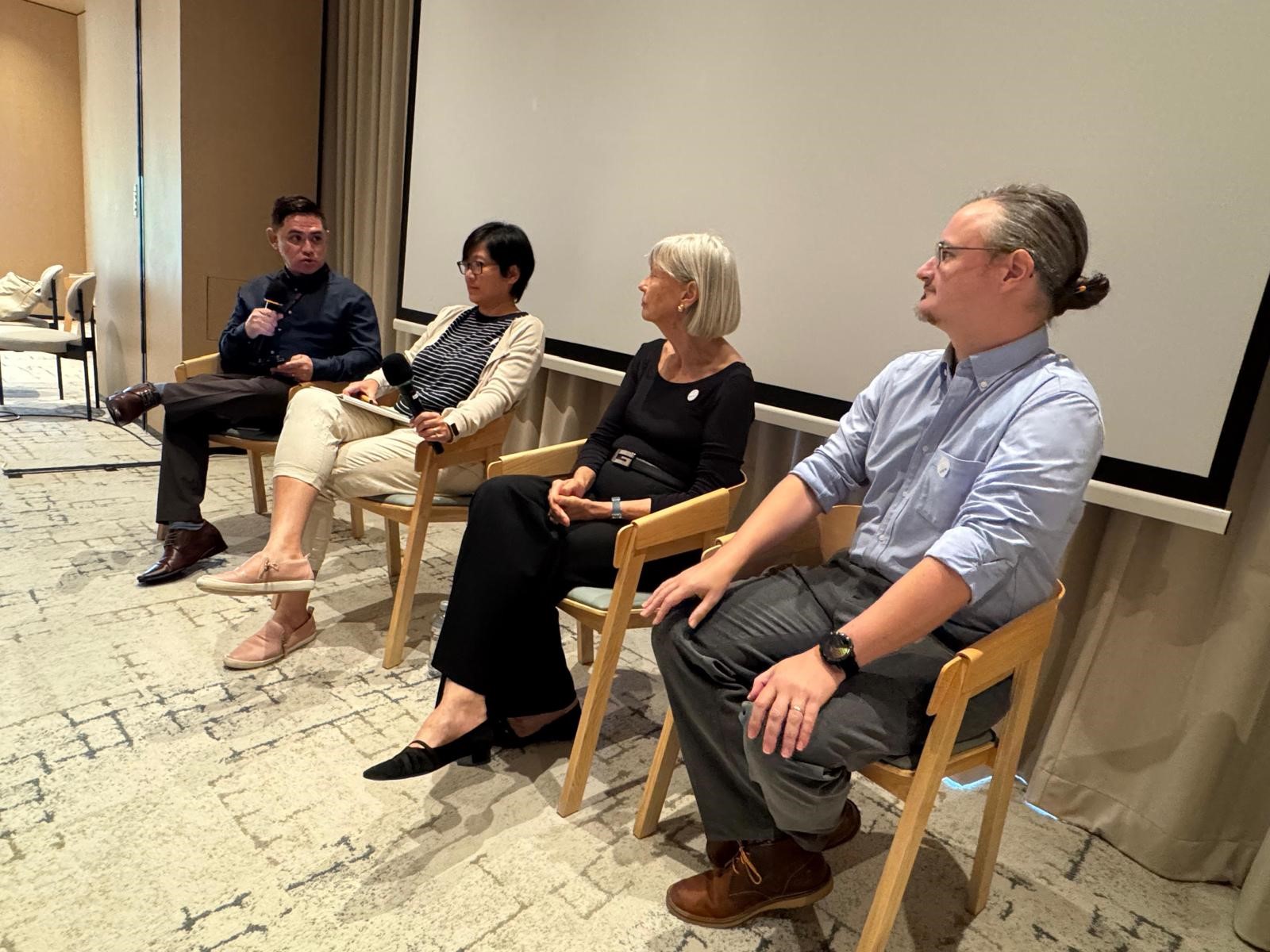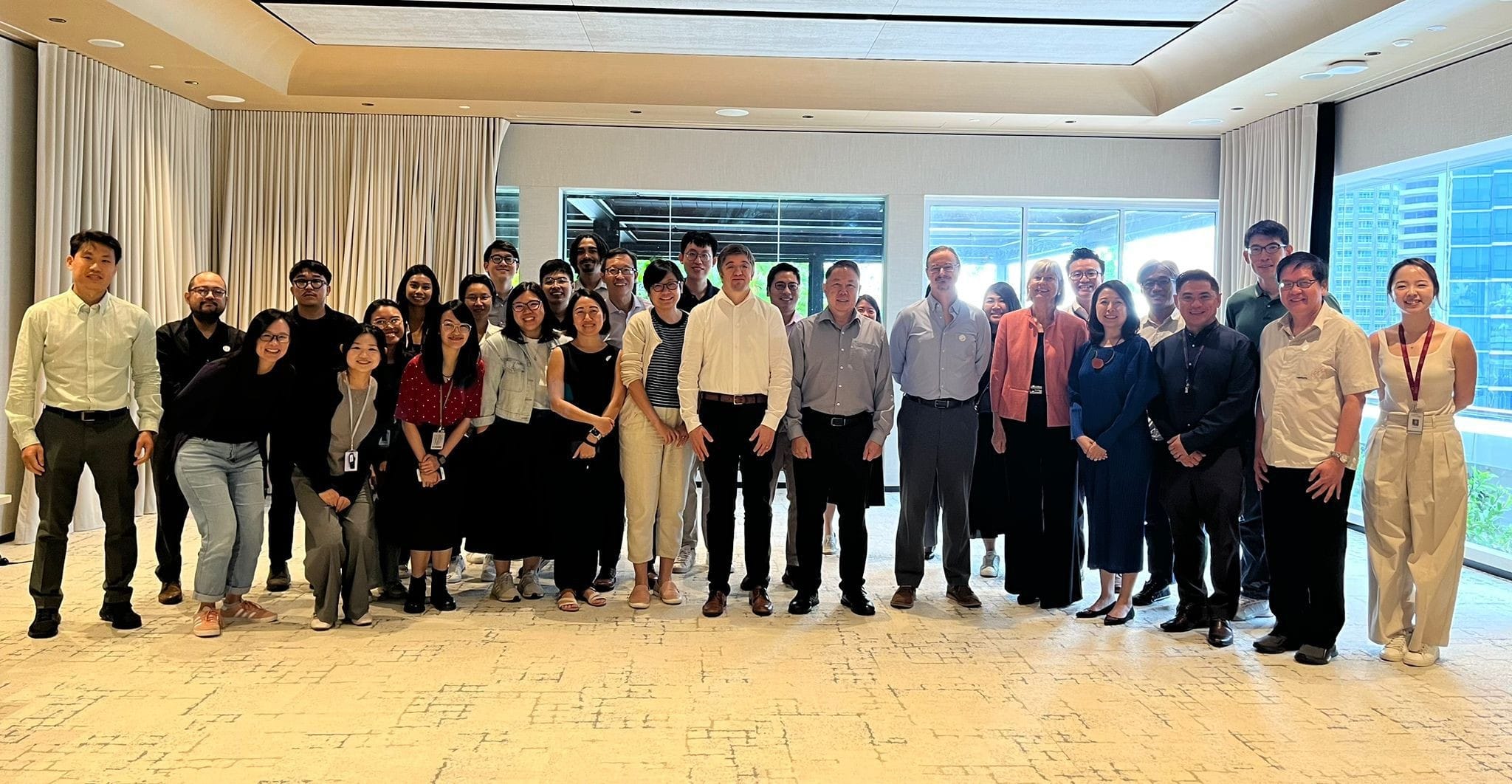Shaping Communities and Partnerships for Tomorrow Through a Social-Behavioural Lens
25 September 2025
CLC's Urban Solutions and Sustainability Socio-Behavioural Science (SBS) Community of Practice (CoP) builds capabilities on social science research and tools. This year's CoP focused on people-centric approaches and the application of SBS methods.
6th edition: Partnerships as an Enabler of Singapore’s Next Leap in Urban Development

The 6th edition of the CoP focused on the central themes of “Partnerships as an Enabler of Singapore’s Next Leap in Urban Development”. This session explored how Partnership and Engagement fosters inclusive communities, reinforces trust and collective action, and supports urban planning and infrastructure developments. It was co-curated by CLC and several partner agencies, including the Prime Minister’s Office (PMO-SG), the Ministry of Community, Culture, and Youth (MCCY), and the Land Transport Authority (LTA).
PMO-SG highlighted how the Forward Singapore exercise has made citizen and public engagement central to its approach, marking a shift towards co-creating with residents and actively involving the public in designing the spaces where they live, work, and play. MCCY emphasised that stakeholder partnerships will guide Singapore’s next phase of nation building. LTA complemented this by sharing findings from the North-South Corridor (NSC) Visioning workshops, which captured neighbourhood insights and community aspirations. For this CoP, CLC further broadened participation by inviting private sector participants. Participants engaged in vibrant breakout discussions which helped foster dialogue about success indicators and how effective engagement can strengthen a community's resilience.
7th edition: Translating Social Behavioural Insights into Planning Practice


Our 7th edition looked at “Translating Social Behavioural Insights into Planning Practice”. The session explored how SBS methods such as archetypes, vignettes reflecting future infrastructural interventions, and behavioural insights can be adapted to support policy and planning across the built environment.
Felicity Chan, Senior Research Fellow at the Singapore University of Technology and Design’s (SUTD) Lee Kuan Yew Centre for Innovative Cities, shared her study on how residents experience neighbourhood redevelopment, from how they navigate routine disruption to changing relationships in times of urban change. She shared how everyday locations such as transport hubs, parks, playgrounds, shopping areas, landmarks, and institutions served as important places that fostered a sense of belonging through shared memories. Felicity also proposed a framework to assess the built environment’s ability to nurture belonging by mapping residents' everyday lived spaces, identifying perceptions of change, and exploring how urban redevelopment influences these feelings of connection within the community.
ETH Future Resilient Systems (ETH-FRS) shared on an innovative method in data collection to engage the community and deepen our understanding of possible future social archetypes, reflecting their response to changes in the built environment. This study was a result of CLC’s partnership with ETH-FRS, to explore the feasibility of future social archetypes that can reflect possible relationships between future communities and the built environment in Singapore in the next 10 – 15 years.
Archetypes play a valuable role in urban and social planning, offering strategies for managing change and building resilience within communities. They can inform scenario planning, shape engagement strategies, and guide the design of interventions during periods of transformation or disruption. By grouping people according to shared needs or responses, planners can foster more focused dialogue, anticipate reactions to change, and address psychological and emotional impacts more thoughtfully.
Conclusion
These two editions of the CoP showed that, firstly, prioritising relationship quality over process metrics is important. When engaging on infrastructure-related projects, it is important to measure engagement success through relationship quality with stakeholders, considering both short-term interactions and long-term. Secondly, places of belonging shape community wellbeing. Everyday locations such as transport nodes, parks, playgrounds, health clinics, shopping areas, landmarks, and institutions play a critical role in fostering a sense of belonging. Recognising and intentionally developing these spaces can help communities adapt to urban transformation while preserving social ties and shared memories.
The SBS CoP is supported by the National Research Foundation, Ministry of National Development’s (MND) Research and Development Division, and the Ministry of Sustainability and Environment (MSE).
Do reach out to Jonas_hong@mnd.gov.sg if you wish to participate in the next SBS CoP.
Contributed by: Jonas Hong, Senior Assistant Director, Research
